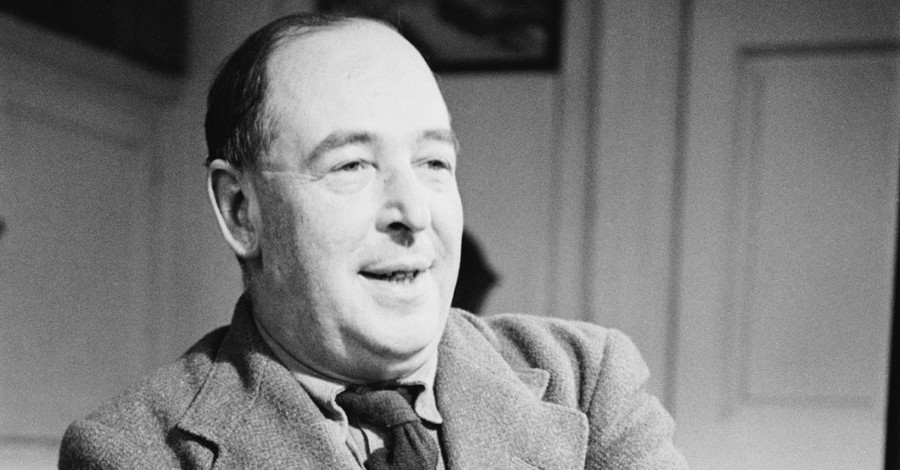10 Controversial Christian Books You Should Read Anyway

It’s a tale as old as time: your friends on social media are ranting about how a “so-called Christian” book is pure evil. “Don’t waste your money on this heresy!” they announce. “Cover your children’s eyes! These lying pages would make good toilet paper!”
Meanwhile, you’ve got other friends talking about the exact same book and singing a very different tune: “The best thing I’ve ever read! It’s changing my life! If you love Jesus, you’ll place an order tonight!”
So who do you listen to? To read, or not to read?
There’s no single answer to this question. (Unless you plan on recommending or criticizing the book yourself, in which case you should probably read it.) Controversial books aren’t inherently worth reading. But Christians don’t need to be scared by controversy either. Often, books are controversial because they raise difficult and important questions. If we only read things we already agree with—if we avoid everything that might make us uncomfortable—we’ll never learn anything new.
Here are 10 controversial Christian books that are definitely worth the read, whether you wind up agreeing with the author or not.
Photo credit: ©Thinkstock/kurmyshov

1. The Shack, by William P. Young
A movie version of The Shack was released in March 2017, stirring up a fresh pot of controversy—but William Young’s book has been the subject of controversy since its publication in 2007. Part realism, part fantasy, and part allegory, The Shack describes one man’s encounter with the three Persons of the Trinity while he mourns the death of his daughter. Especially notorious for its depictions of God the Father as a black woman and the Holy Spirit as an Asian woman, The Shack grapples with how a sovereign, loving God can allow evil to exist.
Why should you read it? For those of us who are used to thinking of God as an old white man, this book is an evocative reminder that we are all created in the image of God. It is at once troubling and deeply moving, offering fresh insights into what it might look like and feel like to be fully loved by God.
Photo courtesy: Mahendra Kumar/Unsplash

2. America's Original Sin: Racism, White Privilege, and the Bridge to a New America, by Jim Wallis
As the title suggests, this book argues that the “original sin” of racism has been woven into the fabric of American society. Historically, this racism is most evident in the practice of African slavery and in America’s mistreatment of Native Americans. Even today, Wallis argues, the residue of racism continues to perpetuate a society that disadvantages people of color.
Wallis’s book is a call to repentance for those who have ignored conversations about racial reconciliation because they don’t feel personally affected by racism. Wallis challenges us to reconsider our ethical and political allegiances in light of America’s history of injustice and what Jesus really says about justice. You don’t need to agree with his conclusions to agree that these questions are desperately worth asking.
Photo credit: ©Thinkstock/eskamilho

3. A Wrinkle in Time, by Madeleine L'Engle
This beloved children’s fantasy book is highly acclaimed and won the 1963 Newberry Medal. It has also been placed on the American Library Association’s list of frequently banned books. In the book, teenage heroine Meg Murry, her friend Calvin, and her brother Charles Wallace set out to rescue their father, who has been imprisoned on a distant planet where everyone is controlled by a single all-powerful brain named “It.” The children are helped by three women with supernatural powers who ambiguously appear to be angels or witches, and by a fortune-teller named “the happy medium.”
The “magic” of L’Engle’s fantasy world offers rich theological insight into the supernatural power of God that suffuses our own daily lives. Although the book is not a direct allegory, its message of light overcoming darkness is nonetheless a moving image of the divine light that “shines in the darkness” and is not overcome by that darkness (John 1:5).
Photo courtesy: ©iStock/Getty Images Plus/rihard_wolfram

4. Washed and Waiting, by Wesley Hill
A blend of memoir and theology, this book discusses Hill’s experience of being attracted exclusively to the same sex. Because of his commitment to following his best understanding of the Bible, he chooses not to act on his sexual desires; however, he also comes to the realization that God has not necessarily promised to make him “straight” and give him the desire to marry a woman. Thus, Hill describes himself as a “celibate gay Christian.”
Washed and Waiting raises important questions about what the Bible says (and doesn’t say) about same-sex orientation and sexual activity, and it doesn’t shy away from difficult answers. No matter your theology or your views on sexuality, Hill’s costly commitment to Jesus is deeply inspiring.
Photo credit: ©Thinkstock/lolostock

5. This Present Darkness, by Frank Peretti
In this fictional depiction of spiritual warfare, the small town of Ashton finds itself at the center of a spiritual battle. In the human realm, a preacher and a newspaper reporter uncover a New Age plot to overtake the town. In the spiritual realm, armies of angels and demons skirmish against each other, strengthened or weakened by the prayers of the human beings whose souls they are fighting over.
Although Peretti’s fantastical description of how spiritual warfare works is imaginative (and probably not literally accurate), the story is a compelling reminder of the power and importance of prayer. In a secular Western society that tends to discount the presence of the supernatural in daily life, This Present Darkness points back to the biblical truth that spiritual warfare is real and that Christians are called to participate in it.
Photo credit: ©Thinkstock/DragonImages

6. Traveling Mercies, by Anne Lamott
It’s rare to find an author who talks thoughtfully about following Jesus and also uses swear words in her writing. But Anne Lamott is such an author. Traveling Mercies is a collection of honest, often hilarious stories from Lamott’s own life of faith. Lamott insists that truly pursuing God will not necessarily make a person look like a stereotypical American Christian. This premise is what makes her work most controversial, and also what makes it most thought-provoking and insightful.
If you’ve been a Christian long, you know it’s easy to fall into “Christianese” language and forget the powerful meanings behind our words. Lamott’s unorthodox discussions of familiar topics like prayer, forgiveness, and grace helps pull her readers out of familiar clichés and invites us to gaze at God with a fresh sense of wonder.
Photo credit: Pexels.com

7. The Great Divorce, by C.S. Lewis
This work of theological fantasy imagines what the afterlife might be like. It depicts a group of people who ride a bus from the “grey town” of hell to the foothills of heaven. As it turns out, however, those who belong in hell are incapable of enjoying heaven; most of the journeyers voluntarily choose to return to hell. Lewis reflects on the nature of eternal reward and eternal punishment, proposing that the torment of hell is something people willingly choose because of their refusal to submit to God.
The Great Divorce reminds us that many of our assumptions about heaven and hell are culturally inherited and don’t come straight from the Bible. (Who says we’ll ride on clouds playing harps?) Lewis isn’t offering a literal depiction of heaven, since such a thing wouldn’t be possible. Instead, he gives a poignant reminder that there can be no joy without obedience.
Photo courtesy: ©Getty Images/John Chillingworth/Stringer

8. Rich Christians in an Age of Hunger, by Ronald J. Sider
What do Jesus’ commands about wealth and poverty mean for western Christians in the present day? This book, first published in 1978 and updated in 2005, grapples with the awful realities of global poverty, disease, and hunger while most of the West lives in abundance. Arguing that this disparity is largely the result of systemic injustice, Sider urges Christians to reconsider their allegiances to liberal or conservative political policies in order think creatively about how best to follow Jesus’ instructions.
Challenges like Sider’s are valuable to the church because they call us back to the words of Jesus Himself, instead of allowing us to settle for the easy answers we see lived out in the world around us. No matter what your political leanings, it is never a bad thing to take a fresh look at Jesus’ instructions and ask, “Am I doing this right?”
Photo credit: ©Thinkstock/TongRo Images Inc

9. Harry Potter and the Deathly Hallows, by J.K. Rowling
The magical elements of Harry Potter are well known, and many Christians are reluctant to read Rowling’s fantasy series for this reason. What is less known, however, is that this final installment of Harry’s battle against the evil Lord Voldemort is also full of biblical allusion and imagery. The headstone on Harry’s parents’ grave quotes 1 Corinthians 15:26: “The last enemy that shall be destroyed is death.” Harry’s death also resonates with the gospel story: in order for Harry to defeat the evil Voldemort, he must allow himself to be killed, because there is a part of Voldemort living inside of him.
Jesus’ command to “die to ourselves” is so familiar to many of us that we easily forget how radical and strange it is. Harry’s willing death to defeat the evil inside him is a beautiful image of the death we all must die to sin in order to follow Jesus in new life. You definitely shouldn’t read the Harry Potter series as a handbook for doing magic (and it won’t work for that anyway), but you may want to consider the powerful spiritual metaphors you could find within these books.
Photo credit: ©Madalyn Cox/Unsplash

10. Blue Like Jazz, by Donald Miller
The subtitle of Blue Like Jazz is “Nonreligious Thoughts on Christian Spirituality,” and the book fulfills the subtitle’s promise. Miller is faithfully Christian in his approach to questions of life and theology, but he also talks frankly about the ways his life doesn’t measure up to the standards of “religious” Christianity. Refreshingly honest, Miller is more interested in telling the truth than in making himself look like a good Christian.
Miller’s creative approach to storytelling and theological musing make him both entertaining and challenging to read. Though the “Don” we meet in this book’s pages doesn’t always look like a Christian hero or role model, there is something compelling about Miller’s raw honesty in his devotion to God. Maybe we all could use a bit more of Miller’s honesty in our own lives as well.
Gregory Coles is an author and an English instructor at Penn State University. Learn more at www.gregorycoles.com.
Photo credit: ©Thinkstock/mallmo






